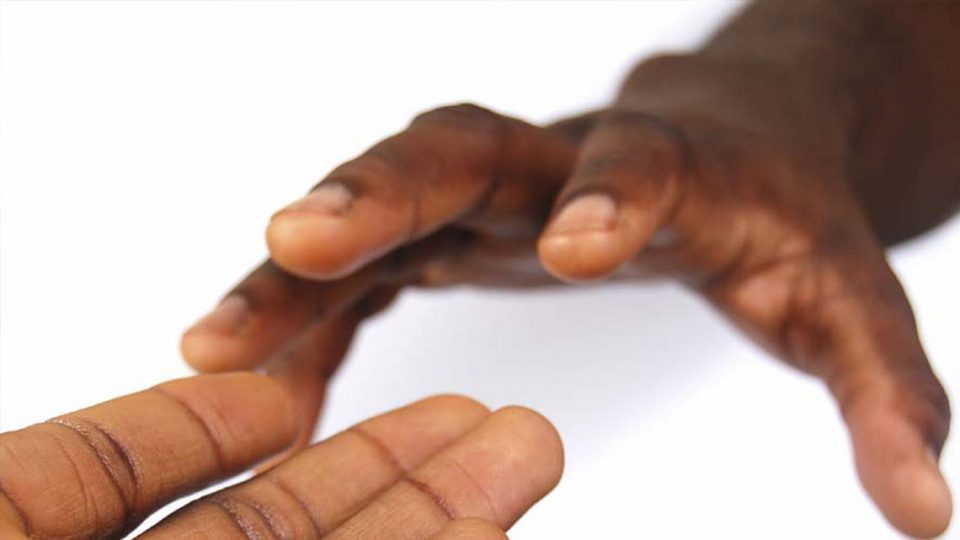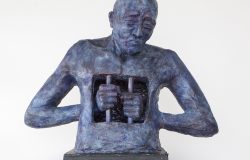How come changing your mind can be so easy or so difficult depending on the idea you want to exchange? When my parents separated, my mother decided she would have nothing further to do with my father. Regardless of monthly alimony paid, or not paid, as was more often the case; their two children getting married; the birth of four grandchildren and the migration of all these descendants to other parts of the world there was never even a desire to say one word to one another, or share another moment together. It was over. They had been together for 24 years and ended up being not together for 30 more. That’s a long time to never speak to someone with whom you have a shared life. It’s a long time to enforce a total defection of affection.
Our logical brains have a plan and order for how they fancy our lives should operate. We like to think that we have some very ingenious strategies at play for how we manage our lives. We have our personally designed and calibrated balance of predictability and creativity, fine-tuned to our optimal level of effectiveness. There is a sort of rectangular precision to how it all clicks together. And it’s all quite beautiful when things are going to plan. Within our plan we have a margin of error safely accounted for, and it all seems to work pretty well. That is, until it doesn’t work for us. Our contrived control over life suddenly, and oftentimes quite dramatically, can become annihilated, taking us into the maelstrom.
Like when we fall in love.
When love takes over, the structure and stability of our planned out lives runs amok. Our thoughts become obsessed with the other, the mundane becomes psychedelically lit up. We feel more; we sense more; we are expanded across the canvas of life, and we are somehow more alive than we have ever been capable of imagining. Life is good and grand and bountiful. Nothing remains the same because our entire system is invaded by beautiful love. Our chemistry and neurology transform to incorporate this other being into our way of being, thinking, planning, doing. The other is in the very air we inhale.
Until we fall out of love.
Then that other being no longer energises us. In fact, they drain us; depress us; dulling our lives down to the erratic glimmer of a dying light bulb. Their presence irritates like sand in a shoe. Their former wit and charm becomes witless and clumsy. We become embarrassed to be associated with them, ashamed that we ever saw anything in them. Our distaste can cause us to inflict some of the nastiest aspect of our characters towards the creature of our once imagined love. And they must go from our lives. And most certainly we shall go from theirs.
The fascinating thing is we do this transformation to ourselves through our thoughts. Poets and scientists may have examined love from all sides, but this elusive thing we call love is all made up. Love is just a thought.
I remember once encountering the delicacy of dolmades when I was travelling in Greece. Every time I saw dolmades on a tapas plate or as part of a meze spread I was a mouth-watering happy consumer. And then one day I was violently ill after I had indulged on a plate of these enshrined rice concoctions. I changed my mind. I cannot even look at a photograph of a dolmades and my mouth now begins watering like I am going to be sick. I have laid down new neural pathways that kick in with Pavlovian eloquence the moment I see or smell dolmades. They cannot be in my life. I have new thoughts about the humble dolmades and they are not loving ones.
So what’s going on for us when we stubbornly hold onto a thought that no longer serves us, or diminishes in its likelihood of happening like the energy leaving a shooting star? I have met people, too numerous to count, who hang onto a belief that doesn’t work anymore; a hope that no longer serves them; a dream that actually shipped out years ago. He’ll change; I’m sure they’ll stop; she’ll come back, they’ll come round to the idea; I just can’t give up, I know this is what God wants for me. Platitudes that I think they actually know have no bearing on their reality but the cliché feels safer than the unchartered possibilities crashing at the bottom of the abyss before them. They cannot change their thoughts. They have constructed a life around a set of beliefs and like an enchanted Tatiana, Queen of the fairies, they are besotted with an ass.
The same plays out for that logical, structured, rectangular, brain-driven plan we have for our lives. It too is a construct. We scaffold our thoughts about a sense of our selves and what we think makes for a meaningful life and we declare this a truth and the other an untruth. We have it right and they have it wrong. Somehow my reality is made more real when I can poke holes in the threatening differences of the constructed lives of others. We design our realities through our thoughts. Our memories become a serialised story that we weave through the fabric of our lives. The experiences, the loves, the losses, the suffering, the survival, the joys, and the bizarre coincidences – these are the stories we have at our disposal to create our version of life.
I am always fascinating to see what characteristics are ascribed to people’s stories of their God. For some their God is a white bearded, perhaps somewhat bad tempered and judgemental old man electrifying humanity from his heavenly quarters. Those who have moved on from an angry old testament Abrahamic religion may have a more inclusive God. Some have concretised a good angel and cruel devil instructing them from opposite shoulders with tricky temptations. Some choose a more warrior-like God demanding they defend some dreamed up rule. Some prefer the nature-gods: they see God all around in every life form, in every act of the world – the ‘good’ acts and the ‘bad’ acts. Some are Godless. Each has an imagined creation of this thing that they anoint as an omnipotent force governing life, even those who choose to see the world as a chaotic flurry of chemistry with nothing to do with a God. But it’s our creation – our construct. Like love and life, our version of God is a thought.
So when my mother decided to change her thoughts about my father, or my physiology helped me change my thoughts about dolmades, something went on inside us concerning the construct of our realities. Given the truth that we are at liberty to think up our lives and create for ourselves a sense of love and to imagine ourselves guided by a particular sort of god-force, I often wonder why we think up for ourselves such horrendous versions of Life, Love and God.
Wouldn’t we do better to think about Life, Love and God with more grace and kindness? Perhaps if we could share our lives with a benevolent gratitude we could then concentrate our time on helping those who are genuinely experiencing sickness, oppression, abuse, disregard, hunger and homelessness. It might be of more use to us and those around us if we were to construct our realities on gratitude and possibility rather than a memorised litany of suffering, wrong doing and righteousness.
And the mind-blowing thing is this: You can do that – a kinder God, a more loving act, a peaceful acceptance of life is just a thought away from where your thoughts are right now.







Beautiful words Cal. The God version I’ve known is most definitely the loving variety. The sadness comes when deep down we don’t believe our own worthiness for his undeserved grace – and instead hold a belief that one must somehow ‘earn’ approval or love. When all we need to do is accept what is freely given.
Thanks – as always, I appreciate the feedback. Singapore looked great!
Thank you Cal. For me reading your stories is like spending 5 minutes with a wise prophet. I always find something to relate to and you give me loads of food for thought to change some of my ‘stuck in the old’ ways.
Why thank you! I’m getting all verklempt!